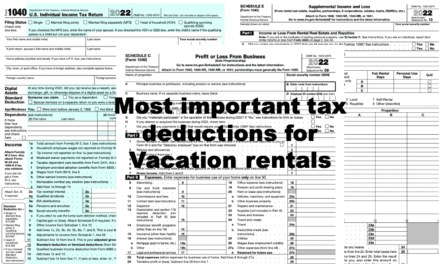Last updated on December 9th, 2025 at 08:49 am
DOGE (department of Government Efficiency) has uncovered substantial instances of spending on unnecessary things. Sound familiar? This article is designed to provide you with simple ways to organize your financial life now not later. Time to jump on the new trend started by DOGE, look into your own finances, and cut the fat and waste.
Ever wonder why many very wealthy people who have had money for a long time own old cars? I do not mean collector cars but cars that are many years old. How about the houses they live in, some are older. Some wealthy people do not wear the latest fashion. This is how they earned their wealth by not being extravagant.
check out our great FAQ
Located at the end of this article
What is extravagant? Basically spending on anything you do not need. That occasional Starbucks coffee is something you do not absolutely need but an occasional treat is good. That’s occasional. Financial decisions should be made based upon several things, we are going to dig in and discuss how to start the process to streamline your financial life.
Let’s start by discussing goals to help organize your financial life
Set Financial Goals Like DOGE: A Better Plan for Your Money
The DOGE effort started with a goal—to save $2 trillion by cutting unnecessary spending. You may not need to save trillions, but you can set financial goals that align with your own financial situation. Whether you want to reduce spending by 20%, build an emergency fund, or invest for the future, having realistic goals will help you make the best financial decisions for your life.
Setting Your First Financial Goal
The first step to improving your financial life is defining what you want to achieve. Goals can be simple or complex, short-term or long-term. Here are some examples:
- Reduce spending by 20% and invest the savings in a Roth IRA. This is a good rule for those who want to build wealth while keeping monthly expenses in check.
- Save $5,000 for an emergency fund in one year. Having three to six months of expenses set aside is a key part of financial well-being.
- Pay off $10,000 in credit card debt within two years. High-interest credit cards can drain your finances, and reducing them can improve your financial health.
- Increase retirement contributions to the maximum amount your employer matches. If your company offers a match program, taking full advantage of it is the best way to grow your retirement accounts.
- Reduce unnecessary monthly payments. Reviewing bank statements, credit cards, and monthly budget items can help identify where you’re spending too much money.
- Starting a small business or Side Hustle. Earn extra money which will help with unexpected expenses and to pay off already-insured debt. Check out this article which is written for people to start a business after retirement but it will work for anyone.

Adjusting Your Goals Over Time
Just like the DOGE effort, your financial goals don’t have to be set in stone. You can adjust them as your financial situation changes.
- If you get a raise, you might want to increase your contributions to your investment accounts or savings accounts.
- If unexpected medical bills arise, you might need to focus on debt repayment before adding to a brokerage account.
- If family members need financial help, you may need to balance supporting them with your own long-term goals.
- If you switch jobs, consider rolling over your retirement accounts to avoid losing track of your investments.
A better plan of realistic goals will help you stay financially flexible while still making progress.
Organizing Financial Accounts and Important Documents
To track your progress, you need a good idea of where your money is and how it’s managed. Organizing your financial records will make it easier to stay on top of your financial decisions.
1. Manage Your Bank and Investment Accounts
- Review all your bank accounts, including your checking account, savings accounts, and brokerage accounts, to ensure they align with your goals.
- Set up recurring auto-deposits into savings or investment funds.
- Keep account numbers and important financial documents in an accessible place with strong passwords for security.
2. Secure Your Financial Information
- Use strong passwords for all online accounts to prevent fraud.
- Keep important documents like tax returns, insurance policies, and powers of attorney in a filing system—either digital or physical documents in a fireproof safe.
- Be cautious about sharing financial information with family members unless they are part of a joint account.
3. Set Up Automatic and Direct Payments
- Enroll in automatic payments for bills to avoid missed deadlines.
- Use direct deposit to ensure your paycheck goes straight into your account without delays.
- Monitor monthly expenses and adjust your monthly budget when needed.

Making Smart Financial Decisions Going Forward
Now that you’ve set goals, organized financial records, and secured your financial accounts, you’re in a great position to improve your financial life.
- If you feel overwhelmed, take a deep breath—it’s a good time to reassess and make small changes.
- Keep up with your financial institution’s resources, such as consumer reports or advice from a financial advisor.
- Store bank documents safely, whether in an attorney’s office or an encrypted digital system.
By following steps to manage your personal finances, you’ll build a foundation for long-term success. It takes little time to set up an organized system, but the benefits will last for years.
Would you like help creating a customized financial plan based on your income and goals? 🚀
Your financial woes can start to vanish when you look into where your money is going.
Where Is Your Money Going? A Deep Dive into Your Spending Habits
Before making any financial changes, the first step is to identify exactly where your money is going. Most people have a general idea of their expenses, but when you look at the details, you may find surprising patterns. Here’s how to break down your spending and get a clear picture of where your money is flowing each month.
1. Fixed vs. Variable Expenses
Not all expenses are the same. Some remain constant month after month, while others fluctuate. Identifying these categories will help you understand how much of your income is already committed before you even begin making discretionary purchases.
- Fixed Expenses – These are recurring costs that don’t change much, such as rent or mortgage, insurance premiums, car payments, and loan repayments.
- Variable Expenses – These costs change depending on usage or lifestyle choices, such as groceries, gas, entertainment, and dining out.
Sorting your expenses into these two categories gives you a clearer picture of what is essential and what is flexible.

2. Recurring Subscriptions & Memberships
Many people sign up for services but lose track of what they’re actually using. You might have multiple streaming services, a gym membership, software subscriptions, or a premium shopping service that you don’t use often. These charges may seem small, but they add up over time.
Review your bank statements and credit card transactions for automatic charges. You may be surprised at how many services are quietly deducting money from your account each month.
3. Daily Spending Habits
Small, everyday purchases can be one of the biggest hidden expenses. Individually, they don’t seem like much, but over time, they add up.
- Coffee runs – Are you grabbing a coffee on the way to work every morning?
- Takeout and dining out – How often are you eating at restaurants or ordering food delivery?
- Impulse buys – Do you frequently grab items while checking out at the store or make late-night Amazon purchases?
These small transactions are easy to overlook, but together, they can consume a large portion of your discretionary income.
4. Grocery & Household Shopping
Grocery bills can fluctuate wildly depending on habits, brand choices, and how often you shop. Some key spending patterns to look for include:
- Are you buying name-brand instead of generic?
- Do you shop multiple times a week, picking up extra items each visit?
- Are you purchasing pre-packaged or convenience foods, which often cost more?
Additionally, household expenses—such as cleaning supplies, toiletries, and pet food—should be reviewed to see if they are contributing significantly to monthly spending.
5. Utility & Service Bills
Utilities and services like electricity, water, internet, cable, and cell phone plans can take up a large portion of your budget. Reviewing these bills can help you see where your money is going:
- Do you have extra features on your phone or internet plan that you don’t use?
- Are you paying for premium cable or multiple streaming services that overlap?
- Has your electricity or water usage increased without you realizing it?
- Learn how to save here
Utility bills often rise gradually, so it’s easy to miss when costs go up. Check that leaking toilet. After a freeze check outside pipes.
6. Credit Card & Bank Fees
Many people don’t realize how much they’re losing to fees. Check your statements for:
- Monthly maintenance fees on checking or savings accounts
- ATM withdrawal fees for out-of-network transactions
- Overdraft or late payment fees from banks or credit cards
- Annual fees on credit cards that may not be providing enough benefits
These small charges can erode your financial progress over time, so it’s important to know how much you’re paying. Learn how to gain the greatest advantage using credit cards here

7. Transportation & Car Expenses
Owning a car is more than just a monthly payment—it comes with fuel costs, maintenance, insurance, and more. Consider:
- How much are you spending on gas each month?
- Are you paying for tolls, parking fees, or rideshare services regularly?
- How often are you taking public transportation or using Uber/Lyft instead of driving?
- Are car repairs and maintenance costs increasing unexpectedly?
Transportation costs can be one of the biggest expenses, and tracking them closely will help you understand where your money is going.
8. Shopping & Personal Spending
Beyond necessities, personal spending can include clothing, beauty products, tech gadgets, and entertainment. Look at your spending on:
- Clothing & accessories – Are you shopping frequently, or buying high-end brands?
- Technology & gadgets – Are you upgrading phones, laptops, or other electronics regularly?
- Beauty & self-care – Are you paying for haircuts, nail appointments, spa treatments, or skincare subscriptions?
Many of these purchases feel necessary in the moment, but over time, they add up.

9. Entertainment & Leisure Activities
Leisure and entertainment spending can be easy to underestimate. Track your spending on:
- Streaming services & gaming subscriptions
- Concerts, sporting events, and movies
- Hobbies or activities like golf, fishing, or photography
- Vacations & weekend getaways
While entertainment is important for a balanced life, knowing how much you’re actually spending on it can help you prioritize where your money goes.
10. Gifts, Donations, & Unexpected Expenses
Throughout the year, we spend money on things that aren’t part of our regular budget, including:
- Gifts for birthdays, holidays, and special occasions
- Donations to charities or fundraisers. Use the link to check out charities before giving.
- Medical expenses or emergency car repairs
These expenses can be unpredictable, but reviewing past spending can help identify patterns.
Cost-Cutting Expense Checklist
Review each category and check off the ones you’ve considered for cost reduction.
- Rent/Mortgage
- Utilities (Electricity, Water, Gas)
- Internet & Cable
- Phone Bills
- Insurance (Auto, Home, Health)
- Subscriptions (Streaming, Magazines, etc.)
- Dining & Takeout
- Groceries
- Transportation Costs
- Credit Card Fees & Interest
- Entertainment Expenses
- Gym Memberships
- Shopping & Clothing
- Miscellaneous Expenses
- Shop for better auto insurance rate
- Shop for better homeowners insurance rate
- Turn lights off when you are not using a room
- Tip 15% on the subtotal
- Review gift giving
- Share the cost of meals with friends
- Carpool
- Use food before it expires to reduce waste
Taking a Closer Look at Your Money – Key to Organizing your Financial Life
Now that you’ve categorized your expenses, you should have a clear picture of where your money is going. Before making any changes, the key is awareness. Many people don’t realize how much they are actually spending in different areas until they go through this exercise.
Once you understand your spending habits, the next step is deciding what is truly important and where adjustments can be made. Would you like help analyzing these expenses to find ways to optimize your financial life?
Starting Fresh: Setting Up Your Own DOGE for Smart Financial Decisions
If you’re just starting out with your first job, you might not have a long history of financial transactions to analyze. That’s actually a great advantage. You have a clean slate to build smart financial habits from the beginning. This is the perfect time to establish your own DOGE (Disciplined, Organized, Goal-oriented, Efficient) financial system, which will help guide your spending decisions in a way that serves your best interests long-term.
Instead of falling into common spending traps, you can use this opportunity to create an organized system that ensures you manage money in the most efficient way possible. Here’s how to get started.
1. Set Up the Right Accounts and Digital Tools
Before spending money, you need a good system for handling it. Choosing the right financial institutions and tools early on will help you stay in control.
- Consider opening an account with a credit union, which often provides better interest rates and fewer fees than traditional banks.
- Open a savings account tied to your checking account. Overdrafts will be taken from savings at zero cost.
- Use budgeting apps to track your income and expenses. Apps like Simplifi can give you a big picture of your finances at a glance.
- Get a debit card linked to your checking account to avoid debt while still having digital tools for easy transactions.
- Set up digital files for bank documents, pay stubs, and tax records so that everything is in one place. A well-organized digital financial life prevents financial stress later.
2. Think Before You Buy: Establishing Priorities
One of the biggest advantages of starting with a fresh financial slate is that you have the power to decide what’s truly worth spending on. Developing good habits now will help you avoid unnecessary expenses later.
- Instead of signing up for multiple streaming services or buying the latest tech gadgets, ask yourself: “Is this purchase helping me reach my financial goals?”
- Before getting a new phone number and an expensive phone plan, research the best options on Consumer Reports to find an affordable and reliable provider.
- If you’re considering buying exercise equipment, think about whether you will really use it long-term or if a gym membership (or outdoor activities) might be a more efficient way to stay active.
By setting clear financial priorities, you’ll avoid accumulating unnecessary expenses that don’t align with your goals. Keep reading the latest from DOGE for great ideas on how to find the smallest savings.
3. Protect Your Money and Sensitive Data
Being careless with money and personal information can cause big problems down the road. Now is the best time to create security habits that will protect your finances.
- Avoid using public Wi-Fi when accessing bank documents or financial accounts. Hackers can steal sensitive data, putting your personal and financial information at risk.
- Keep your financial information private. Never share your phone number, account numbers, or login credentials with unverified sources.
- Use a credit union or bank that offers fraud alerts and strong security measures to protect against unauthorized transactions.
Developing good habits around financial security will prevent potential losses in the future.
4. Build an Investment Strategy Early
Even if you’re not making a lot of money yet, you can still start learning about investing. A small habit of putting money aside now will create significant change over time.
- Open a ROTH IRA account with a brokerage or bank. Make regular contributions to the maximum allowed by law that year.
- Research a list of mutual funds that align with your financial goals. Many beginner investors start with index funds, which offer diversified exposure to the stock market.
- Use digital tools to automate your savings and investments. Many banking apps and brokerage accounts allow you to set up automatic deposits into an investment account.
- Think about your big picture of finances—it’s not just about today’s paycheck, but also about securing your future.
A simple investment strategy can help you build wealth, even if you’re starting small.
5. Create an Organized System for Tracking Your Money
To avoid financial stress, you need a good system for keeping track of your money. This means knowing where your income goes and how to make the most efficient use of it.
- Set up budgeting apps to monitor expenses and see where you can save.
- Organize your digital files to keep track of bank documents, bills, and receipts.
- Create an emergency fund to handle unexpected expenses without relying on credit.
When you have an organized system, making financial decisions becomes easier and less stressful.
Your Financial Future Starts Now
By establishing a clear, disciplined approach to spending and saving, you can create a good system that supports both your short-term needs and long-term goals. The key is to make informed decisions that align with your priorities.
One key thing that may not have come through at this point is that you can not save yourself from success. What I mean by this is that you start by spending only what you must to meet your goals and invest the savings. For example, you are earning $85,000 per year in household income.
Optimizing Personal Finances for Long-Term Growth
One of the most effective strategies for increasing financial value is balancing spending reductions with income growth. This plan not only improves current savings but also ensures sustainable financial well-being. Check out this example:
Year 1: Reducing Spending and Increasing 401k Contributions
With an annual income of $85,000, net income after taxes is approximately $63,750 (assuming a 25% tax rate). Initially, spending consumes all but $3,000, which is allocated to a 401k.
By reducing spending by 15%, an additional $9,112.50 can go into the 401k. This is a good way to enhance retirement savings without needing additional income.
Year 2 and Beyond: Shifting the Focus to Income Growth
While the 15% spending reduction in Year 1 was a one-time saving, the approach changed in the following years:
- Year 2: A smaller 5% spending reduction contributes additional savings to the 401k.
- Year 3: By this time, all unnecessary expenses are eliminated, making it unnecessary to reduce spending further.
- Year 4 and beyond: The focus shifts entirely to growing income rather than cutting costs.
Growing Income as a Long-Term Strategy
While spending cuts are effective in the short term, increasing income is an excellent place to create lasting financial value. Setting a goal to increase gross income by 3% per year ensures a steady rise in wealth.
By Year 4, gross income has grown to $92,827, and net income follows accordingly. The 401k contribution also grows, ensuring a stronger retirement fund.
Organizing Finances for Efficiency
To manage these financial improvements effectively:
- Keep account statements in a file box or safe deposit box for secure storage.
- Use a bank’s online bill pay service to pay bills efficiently.
- Review important financial statements regularly to ensure financial health.
- Keep track of tax-related documents and bank statements to prepare for filings.
Making Financial Growth a Habit
Each New Year’s resolution can include:
- Checking expense ratios on investment funds.
- Reviewing contributions to investment accounts, checking accounts, and brokerage accounts.
- Adjusting goals based on financial progress.
About your income
You have just taken an important step in improving your financial well-being by learning how to cut unnecessary spending and eliminate wasteful expenses—an approach inspired by the wisdom of DOGE (doing only great expenses). However, cutting costs is only half of the equation.
The next logical step, much like what a responsible government aims to do, is increasing revenue without overburdening yourself in the process. In other words, it’s time to explore ways to bring in more income while maintaining a balanced and enjoyable life.
Maximize Your Earning Potential at Your Current Job
If you enjoy your job, your first option should be to look for ways to increase your income within your current role. This might mean:
- Asking for more hours if you are paid hourly. Many employers are willing to offer overtime or additional shifts to dedicated employees.
- Seeking a promotion by identifying what is required to move up in your company. Speak with your supervisor about how you can take on more responsibilities and demonstrate your value.
- Negotiating a raise by proving your contributions to the company’s success. Keep track of your achievements, quantify your impact, and confidently present your case.
There is an old and true saying: “Do more than what is expected if you want to get ahead.” Employers notice individuals who go above and beyond, and those employees are often the ones who receive better opportunities, higher salaries, and career growth.
If your current job does not offer the potential for higher earnings, it may be time to consider changing jobs or careers. Evaluate whether switching to a different company or industry would provide better financial rewards and benefits. A new job with higher pay, better benefits, or more flexibility could significantly improve your quality of life.
Create Additional Income Streams
Relying solely on one source of income can be limiting, and in some cases, risky. Diversifying your income through side hustles or alternative revenue streams can provide financial security and new opportunities. Consider:
- Becoming a part-time real estate agent – The real estate market offers a flexible way to earn commissions while maintaining another job.
- Starting a side business – Whether it’s lawn care, house cleaning, or handyman services, local service businesses are always in demand.
- Walking dogs or pet sitting – A simple and enjoyable way to make extra money while spending time with animals.
- Launching an online business – Selling products, providing consulting services, or monetizing your knowledge through digital courses and e-books can be lucrative.
- Freelancing – If you have skills in writing, graphic design, programming, or marketing, freelance platforms provide access to clients willing to pay for your expertise.
No matter what you choose, the key is to set clear goals for how much income you want to generate and how you plan to achieve it.
Plan for Long-Term Success
Once you’ve set goals for reducing expenses and organizing your financial life, shift your focus to long-term income growth. RetireCoast offers an extensive series on starting a business after retirement, but the principles within this series apply to anyone looking to generate more income, regardless of age or employment status. Whether you are thinking about retiring early, supplementing your primary income, or simply creating a more financially stable future, this series provides valuable insights.
Don’t Forget to Have Fun
While making money is important, life isn’t all about work. Balance is essential—make time for relaxation, hobbies, and enjoying moments with family and friends. The best scenario is finding a way to make money doing what you love. When you align your work with your passion, financial growth becomes a natural part of your journey rather than a struggle.
By taking control of both sides of your financial picture—reducing unnecessary expenses and increasing income—you set yourself up for long-term success, security, and happiness. Start small, take action, and watch your financial situation improve in ways you never thought possible!
Comparison of ways to save 401(k) vs. Traditional IRA vs. Roth IRA
| Feature | 401(k) | Traditional IRA | Roth IRA |
|---|---|---|---|
| Sponsorship | Employer-sponsored | Individually opened | Individually opened |
| Tax Treatment | Contributions are pre-tax; taxed on withdrawal | Pre-tax contributions (if deductible); taxed on withdrawal | Contributions are after-tax; qualified withdrawals are tax-free |
| Employer Match | Often available | Not available | Not available |
| Contribution Limits | Generally higher (e.g., ~$22,500/year plus catch-up for those 50+) | Lower (e.g., ~$6,500/year; varies by age) | Lower (e.g., ~$6,500/year; varies by age) |
| Investment Options | Limited to employer’s plan selections | Broad range (stocks, bonds, mutual funds, etc.) | Broad range (stocks, bonds, mutual funds, etc.) |
| Withdrawal Rules | Early withdrawals may incur penalties and taxes | Early withdrawals may incur penalties and taxes | Contributions are pre-tax; and taxed on withdrawal |
Results of all your good work on finding waste
John had been feeling the strain of his monthly expenses and decided it was time to take a hard look at where his money was going. He sat down with his bills, statements, and spending habits to identify ways to cut costs without drastically changing his lifestyle. Here’s what he found:
Total Savings:
By making these adjustments, John was able to cut his monthly expenses by $833, which added up to an annual savings of $9,956—nearly $10,000 back in his pocket each year.
John’s takeaway? A few smart changes can lead to big financial gains and best of all, he didn’t feel like he was sacrificing his lifestyle—he was just being more mindful about his spending.
John had been feeling the strain of his monthly expenses and decided it was time to take a hard look at where his money was going. After a thorough review, he found ways to cut $833 per month, adding up to $9,956 per year in savings. But instead of letting that extra cash sit idle, he made a smart financial move—he directed these savings into his retirement accounts (401(k), Roth IRA, or Traditional IRA), where it could grow over time.
John’s Expense Reduction and Investment Plan
John reviewed his monthly expenses and made strategic decisions to cut costs and redirect those savings into his retirement accounts.
Cable Bill Overhaul
John reduced his cable bill from $160 to $70 per month, saving $90 per month ($1,080 per year).
Energy Waste Reduction
By turning off unused lights and appliances, he saved $15 per month ($180 per year).
Car Insurance Reassessment
With expired speeding tickets, John renegotiated his insurance, saving $400 per year.
Home Insurance Adjustment
Adjusting the valuation of his household goods reduced his premium by $150 per year.
Ride Sharing Instead of Driving
By carpooling, John saved $300 per month ($3,600 per year).
Banking Smarter
Switching to a no-fee checking account and setting up overdraft protection saved $196 per year.
Daily Coffee Habit Switch
Investing in an espresso machine cut Starbucks spending, saving $100 per month ($1,200 per year).
Canceling Unused Subscriptions
John eliminated three software subscriptions, saving $175 per year.
Cutting Back on Drinks While Out
By limiting himself to one drink per outing, he saved $75 per month ($900 per year).
The Power of Investing His Savings
Instead of spending his savings, John invested the full $9,956 into a Roth IRA, 401(k), or Traditional IRA with an average annual return of 7%.
Investment Growth Over 5 Years
| Year | Projected Value ($) |
|---|---|
| 1 | 10,653 |
| 2 | 11,399 |
| 3 | 12,197 |
| 4 | 13,050 |
| 5 | 13,964 |
Conclusion: Make Your Money Work for You
By cutting unnecessary expenses and investing those savings, John grew his money by over $4,000 in just five years. With consistent effort, he could easily build a six-figure retirement portfolio without increasing his income—just by making smarter financial choices.
How John Cut Costs and Redirected Funds to Retirement:
- Cable Bill Overhaul – Dropped unused services, saving $90 per month ($1,080 per year).
- Energy Waste Reduction – Conscious use of electricity saved $15 per month ($180 per year).
- Car Insurance Reassessment – With his improved driving record, he renegotiated his car insurance, saving $400 per year.
- Home Insurance Adjustment – Reduced household goods valuation, saving $150 per year.
- Ride Sharing Instead of Driving – Carpooling cut his commuting costs by $300 per month ($3,600 per year).
- Banking Smarter – Setting up an overdraft account and switching to a no-fee checking account saved $196 per year.
- Daily Coffee Habit Switch – Buying an espresso machine cut $100 per month ($1,200 per year) in coffee shop expenses.
- Canceling Unused Subscriptions – Found three services he wasn’t using, saving $175 per year.
- Cutting Back on Drinks While Out – Limiting himself to one drink per outing saved $75 per month ($900 per year).
The Power of Investing Expense Reductions into Johns Savings Program
Rather than spending these newfound savings, John contributed the full $9,956 into a Roth IRA/401(k)/Traditional IRA, investing it in an index fund tracking the equities market. With an average annual return of 7%, here’s what happened to his money over five years:
| Year | Projected Value ($) |
|---|---|
| 1 | $10,653 |
| 2 | $11,399 |
| 3 | $12,197 |
| 4 | $13,050 |
| 5 | $13,964 |
Long-Term Impact of These Decisions
By simply cutting unnecessary expenses and reinvesting the savings, John’s money grew by over $4,000 in just five years, reaching $13,964. And this is just one year’s worth of savings—if he continues this strategy year after year, he could easily amass a six-figure retirement portfolio without increasing his income, just by being financially smart.

FAQs: Simple Ways to Organize Your Financial Life Now
1. What are the first steps to organizing my finances?
Start by tracking your income and expenses, creating a basic budget, and setting up a savings account.
2. How do I create a budget that actually works?
Use the 50/30/20 rule: 50% for needs, 30% for wants, and 20% for savings and debt repayment.
3. What are the best money management apps?
Popular options include Mint, YNAB (You Need a Budget), and PocketGuard for tracking spending and budgeting.
4. How can I start saving money without feeling restricted?
Automate savings, use cash-back apps, and follow the “pay yourself first” rule by saving before spending.
5. What’s the best way to pay off debt quickly?
Use the debt snowball method (smallest balance first) or the avalanche method (highest interest first) to tackle debt efficiently.
6. Should I have an emergency fund, and how much should I save?
Yes! Aim for at least 3–6 months’ worth of essential expenses in a high-yield savings account.
7. How do I start investing with little money?
Use apps like Acorns or Robinhood, invest in index funds, and take advantage of employer-sponsored 401(k) plans.
8. What financial habits will help me build wealth?
Consistently saving, investing early, living below your means, and avoiding unnecessary debt.
9. How can I simplify my finances?
Use autopay for bills, consolidate bank accounts, and automate savings and investments.
10. How do I improve my credit score?
Pay bills on time, reduce credit utilization, and avoid opening too many new accounts at once.
11. What’s the smartest way to use a credit card?
Use it for necessary purchases, pay the balance in full each month, and take advantage of rewards.
12. How can I make saving money fun?
Gamify it with savings challenges, use apps that round up purchases, and set clear reward-based goals.
13. What’s the best way to plan for big purchases?
Create a sinking fund—set aside small amounts regularly for major expenses like a car or vacation.
14. How can I prepare financially for unexpected expenses?
Have an emergency fund, avoid unnecessary debt, and consider insurance for major risks.
15. What’s the easiest way to start organizing my financial life today?
Track your expenses, set financial goals, automate savings, and start small but stay consistent.
Conclusion: Make Your Money Work for You
John’s story is a blueprint for anyone looking to take control of their financial future. Cutting unnecessary expenses is only step one—the real magic happens when you invest those savings wisely. With compounding growth, even small savings can turn into substantial wealth over time.
Are you ready to start making smarter financial choices?
Millennials should check out our article on financial literacy, click here
Gen-X our series for retirement in 20 years is an excellent set of articles to guide you for the next 20 years.
Discover more from RetireCoast.com
Subscribe to get the latest posts sent to your email.









